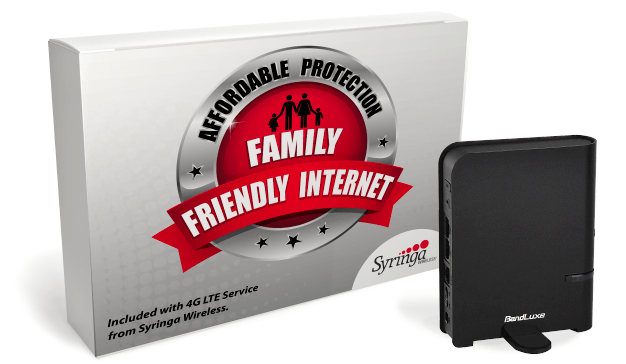A very frustrated employee of Frontier Communications working in one of their Ohio offices sent Stop the Cap! a detailed report on some of Frontier’s problems with customer service, unfair fees, and other horror stories. In this second part, a look at Frontier’s fees, service commitments, and the caliber of customer service. (Stop the Cap’s comments appear in italics.)
Installation fees can be a significant component of a customer’s first bill — a rude surprise for anyone choosing a promotional offer and experiencing bill shock when that first bill arrives. That triggers complaint calls to customer service, where a Frontier representative will ultimately decide whether you will get the free installation you were promised.

How much will your first bill be? The broken promises of “free installation.”
If you order today, your installation will be free… or not.
Let me share a little secret. I believe most representatives will always quote free installation to get the sale. Most believe the payoff for the company in the long run is better than the temporary hit we take on installation expenses. It also makes our commission checks a little fatter the following month. Unfortunately, in the rush to make the sale, I believe the majority of reps fail to note what they promised on the customer’s new account, which means they get charged some expensive install fees. Many quickly call in, accusing us of reneging on our offer.
We handle these as if we were playing some version of Russian Roulette, straight out of Deer Hunter. One out of every six customers will not get their installation fees waived simply because we refuse. Sometimes it becomes a game of using your gut and flipping a coin. Other times it is the amount of the refund.
It is much easier on us if the fees we reverse are under $100, because we have the authority to issue an immediate credit. If the fees are over $100, things get complicated because the request must be approved by a regional office manager who relies entirely on the notes left by the customer service representative. If the request is denied, it is our job to call you back with the bad news. But the good news is the odds are still in your favor if you persist asking for the fees to be reversed.
I hate to say it, but it all comes down to the mood of the rep you get on the line and how much he or she is willing to fill out those forms for you. It sucks, but there is no full-proof system to prevent this and it frustrates me to no end.
Stayed home all day waiting for a Frontier technician who never showed up? They marked your problem solved anyway.

Waiting for the service technician that claims he rang your doorbell and nobody answered.
This is truly the one that bugs me the most. I deal with at least 15 calls a day (this number has increased since July) where either the technician does not call a customer to notify them they can’t make it, or simply does not show at all and writes off the service order as “completed.”
The latter irritates customers and our call center to no end. Customers are infuriated when we tell them the technician knocked on your door, nobody answered, so they left you a note. Of course, the customer insists nobody ever actually showed up and they don’t have any note. We tend to believe the customers when they tell us they do not have working service, if only because they are calling us on their cell phones.
Customer service representatives can be audited and disciplined by Frontier for not clearly including a phone number where the customer can be reached, all for the benefit of Frontier technicians. Despite this, we find our techs rarely contact the customer to keep them informed about the progress of their service call.
Our worst problems are currently in Michigan and Indiana where the majority of our missed commitments stem from. No call, no show — a technician can do this to a customer and still have his job the next day. I would get a pink-slip marked “customer mistreat” and shown the door if I pulled this trick. But many technicians just don’t care and do not have to take the angry calls from customers wondering where the hell the technician is. We see it in tech notes left on the account that say things like ‘didn’t make it to the job on time – leaving to go home.’ They never bothered to ask the customer to reschedule or call them to let them know they won’t be coming.
I understand that their job is just as stressful as ours, but they need to pull their weight as well and stop marking incomplete orders as “finished” or avoiding the customer on a missed commitment. It infuriates customers and makes the company look bad.
The Race to the Bottom: Lower wages = inferior customer service
 Over the past few years, Frontier has been consolidating its call centers — moving to locations where average wages and benefits are notoriously low and politicians push a “pro-business” agenda that hands out favors in the form of tax credits and incentives to companies willing to relocate. For Frontier, this spells doom for employees that were paid enough to earn a living in places like Coeur d’Alene, Idaho ($15-21/hr) in favor of cheap labor staffing new call centers in states like South Carolina ($11-12/hr with a five year wage freeze). That is bitter news for former Frontier employees in Idaho who saved the company an estimated $84 million successfully converting an inherited Verizon computer system to the one Frontier uses in other states. Employees were thanked with termination notices and a cheap, plastic travel mug with the company’s logo. Paying a good wage or cutting paychecks to the least amount possible may make all the difference between a good customer service experience or an embarrassment for the company.
Over the past few years, Frontier has been consolidating its call centers — moving to locations where average wages and benefits are notoriously low and politicians push a “pro-business” agenda that hands out favors in the form of tax credits and incentives to companies willing to relocate. For Frontier, this spells doom for employees that were paid enough to earn a living in places like Coeur d’Alene, Idaho ($15-21/hr) in favor of cheap labor staffing new call centers in states like South Carolina ($11-12/hr with a five year wage freeze). That is bitter news for former Frontier employees in Idaho who saved the company an estimated $84 million successfully converting an inherited Verizon computer system to the one Frontier uses in other states. Employees were thanked with termination notices and a cheap, plastic travel mug with the company’s logo. Paying a good wage or cutting paychecks to the least amount possible may make all the difference between a good customer service experience or an embarrassment for the company.
I am going to name a call center that every other Frontier call center loathes: DeLand, Florida.
This is one of our main sources of broken promises, bad orders and misinformation. In DeLand, you are considered a lifer if you’ve worked there for more than two years. They pay near-minimum wage to fresh-out-of-high-school students to sit on the phones, most of them quitting before their six month probationary period ends. Working for Frontier customer service is a summer job to the kids down there. They could care less if they write an order for someone in an area we don’t even service, provide customers inaccurate pricing, or just cold-transfer the customer back into the call queue if they are too ignorant to help the customer out.
Thankfully, not everyone in DeLand is doing a bad job. Some of our DeLand supervisors and representatives are earnest about delivering good customer service. But too often that is the exception, not the rule. DeLand is notorious for “cherrypicking” customers. That is a term Frontier call center workers know all too well. It means picking incoming calls that are most likely to generate commission-rich sales for the employee while throwing other callers back on hold for someone else to deal with.
The drive to make the sale is so intense, representatives sometimes start writing the order before they even verify the customer is actually in a Frontier service area. We use a simple verification system called CERT to check whether a potential customer is served by us or another phone company. But the orders for customers actually served by AT&T, Windstream, Verizon or CenturyLink still show up, and the customer has to be told later. We have heard about 60 percent of the orders placed in DeLand do not actually go through, either because of this problem or customers calling back changing their mind after they discover they were mislead about something.
Management does not seem to mind the aggressive sales tactics, because it brings the opportunity for new revenue, but customers left waiting or given bad information might.
Tomorrow: Frontier’s broadband service speeds, fees and some new facts about Frontier FiOS you shouldn’t miss.
 An independent cell phone provider in Idaho has found a unique niche to innovate beyond offering traditional cell phone service by launching unlimited 20Mbps home broadband Internet access over its wireless 4G LTE network.
An independent cell phone provider in Idaho has found a unique niche to innovate beyond offering traditional cell phone service by launching unlimited 20Mbps home broadband Internet access over its wireless 4G LTE network. Syringa’s fixed wireless broadband puts the company in a stronger position for a Wireless Internet Service Provider (WISP), because it is able to also market traditional cell phone service for its rural customer base. Syringa still sells unlimited smartphone data plans and has a roaming agreement with a major national carrier for cell phone users traveling outside of Syringa’s home service area.
Syringa’s fixed wireless broadband puts the company in a stronger position for a Wireless Internet Service Provider (WISP), because it is able to also market traditional cell phone service for its rural customer base. Syringa still sells unlimited smartphone data plans and has a roaming agreement with a major national carrier for cell phone users traveling outside of Syringa’s home service area.

 Subscribe
Subscribe Frontier Communications is considering adding redundant backup fiber service in certain areas to prevent major customer outages when fiber cables get severed by contractors or storm events.
Frontier Communications is considering adding redundant backup fiber service in certain areas to prevent major customer outages when fiber cables get severed by contractors or storm events. Telecom company lobbyists in Idaho are targeting “Do Not Call” laws that restrict telemarketing of phone and cable services, permitting sales calls whether residents are pre-registered on a “Do Not Call” database or not.
Telecom company lobbyists in Idaho are targeting “Do Not Call” laws that restrict telemarketing of phone and cable services, permitting sales calls whether residents are pre-registered on a “Do Not Call” database or not.





